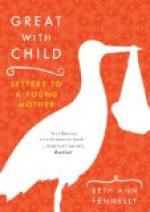“Not being permitted to drink without eating, will prevent the custom of having the cup often at his nose; a dangerous beginning.”
“Men often bring habitual hunger and thirst on themselves by custom.”
“You may, if you please, bring any one to be thirsty every hour.”
“I once lived in a house, where, to appease a froward child, they gave him drink as often as he cried, so that he was constantly bibbing. And though he could not speak, yet he drank more in twenty-four hours than I did.”
“It is convenient, for health and sobriety, to drink no more than natural thirst requires; and he that eats not salt meats, nor drinks strong drink, will seldom thirst between meals.”
Great mischief is often done to their health by children at school; and one instance of this is, in getting violently heated with exercise, and then pouring down large quantities of cold water to cool themselves. I once made it a habitual rule for pupils, that they must drink water, if they drank it at all, on leaving their seats to go to their plays, but not afterwards: and I was so situated that I could prevent the law from being broken, as there was no spring or well to which they could have access, privately. And though they thought the rule rather severe, I have no doubt it saved them from much injury, and perhaps sometimes from sickness.
CHAPTER IX.
GIVING MEDICINE.
“Prevention” better than “cure.” Nine in ten infantile diseases caused by errors in diet and drink. Signs of failing health. Causes of a bad breath. Flesh eaters. Gormandizers. General rule for preventing disease. When to call a physician.
So much error prevails in regard to the medical management of the young, that a volume might be written without exhausting the subject.[Footnote: Such a volume is in preparation. It is intended as a companion to the present.] My present limits and plan allow of only a few remarks, and those must be general.
That “an ounce of prevention is worth a pound of cure,” has so long ago become a proverb, that it seems almost idle to repeat the sentiment. And yet it is to be feared that very few receive it as a practical truth, in the management of children. Now nothing is more certain than that it is easier, as well as more humane, to prevent diseases than to cure them.
I have elsewhere mentioned the opinion of a very eminent physician, that nine in ten of children’s diseases may be imputed to error with regard to the quantity or the quality of their food. For myself, I am by no means certain that nine out of ten is the exact proportion, though I think the number is, at all events, very large. Few children, or even grown persons, are seized with disease suddenly. Their progress towards it is always gradual, and sometimes imperceptible. To a physician of any tolerable degree of skill, however, there is no difficulty in observing and pointing out the first steps towards illness; in those whose habits of life are well known to him; and of foretelling the consequence.




